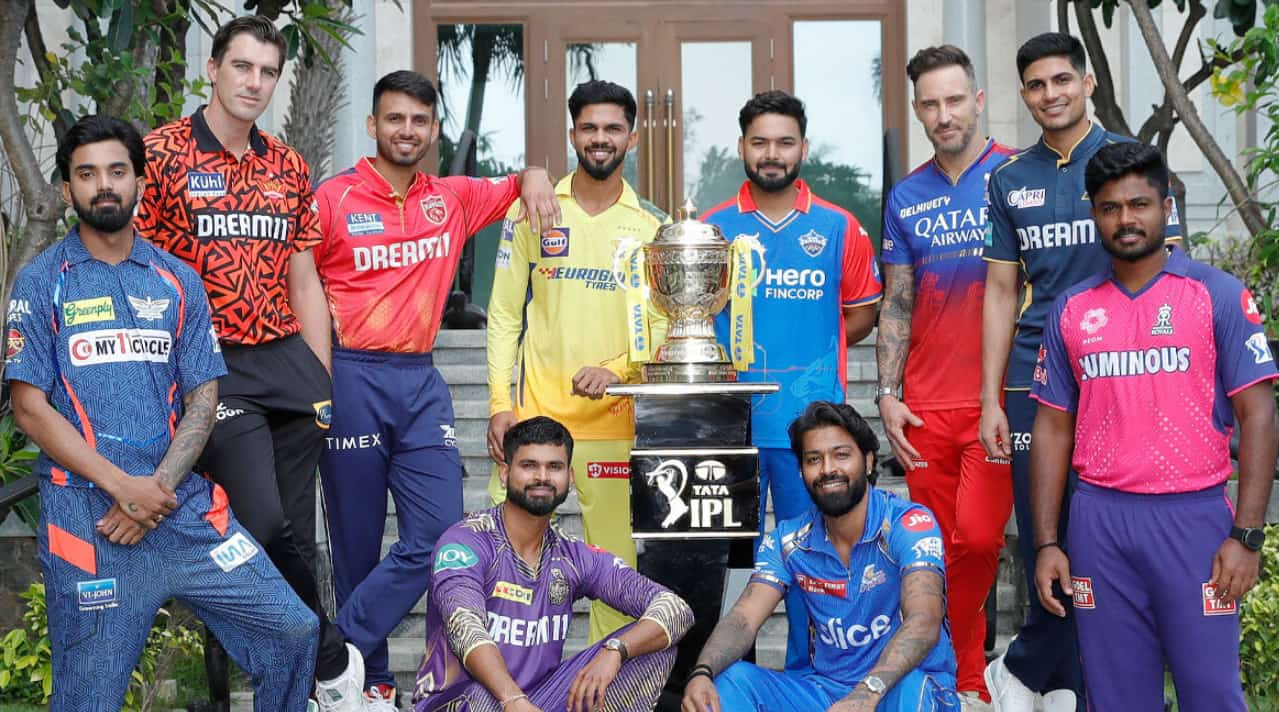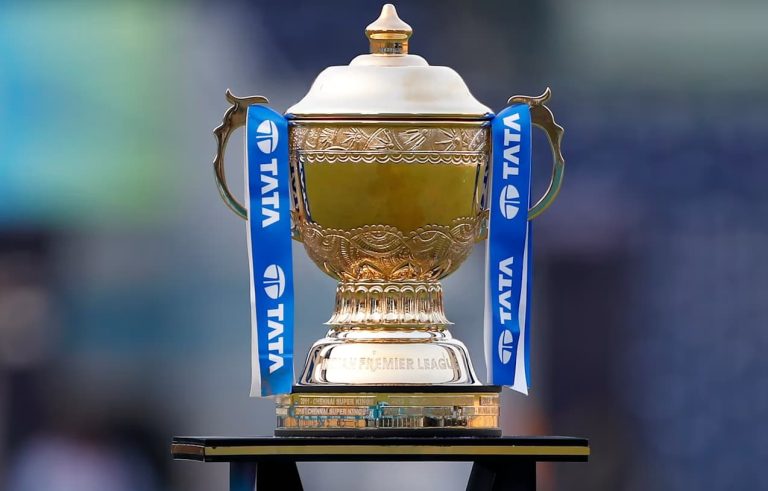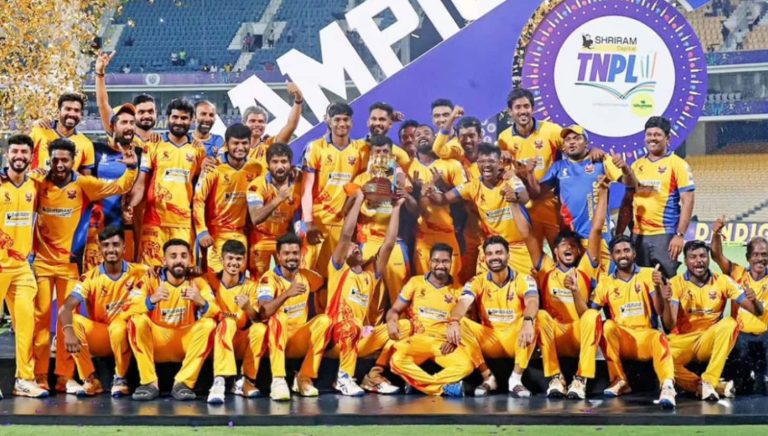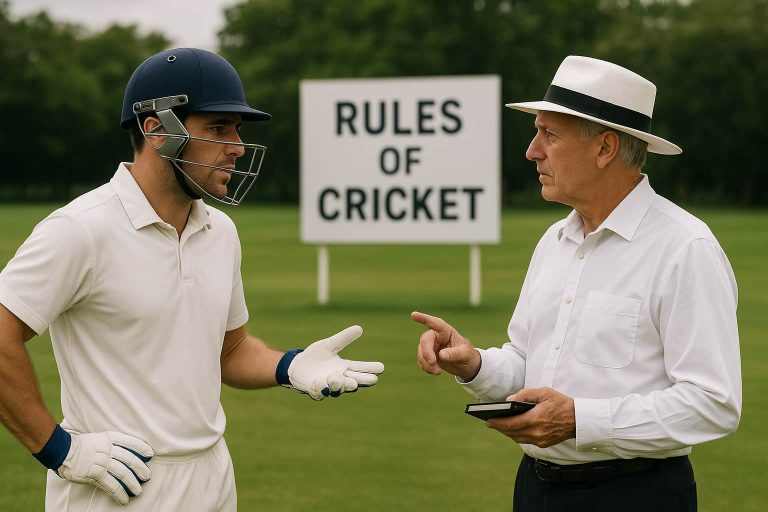Most Unsuccessful Team In IPL History (2025 Updated)
Cricket fans around the world have witnessed some heartbreaking stories in the Indian Premier League, where talented teams have consistently fallen short of expectations.
When we analyze the most unsuccessful team in ipl history, we’re not just looking at numbers and statistics, but at the human drama of missed opportunities, tactical blunders, and the emotional journey of teams that could never quite cross the finish line.
The IPL has created legends and champions, but it has also produced some of the most frustrating tales of unfulfilled potential.
These unsuccessful teams often had everything needed for success – star players, passionate fans, adequate funding, and strong support systems. Yet, something always seemed to go wrong at the crucial moment.
What makes a team truly unsuccessful in the IPL isn’t just about losing matches or finishing at the bottom of the table.
It’s about repeated failures to capitalize on golden opportunities, making the same mistakes season after season, and breaking the hearts of millions of fans who believed this would finally be their year.
The story of unsuccessful IPL teams teaches us valuable lessons about sports psychology, team dynamics, and the delicate balance required to achieve sustained success in professional cricket.
These teams serve as reminders that talent alone cannot guarantee victory – it requires perfect execution, mental strength, and often, a little bit of luck.
Most Unsuccessful Team In IPL History

In this detailed analysis, we’ll explore the tactical, emotional, and strategic aspects that have made certain teams the most unsuccessful in IPL history, examining their journeys through a fresh lens.
Tactical Analysis of Unsuccessful Team Strategies
Understanding why certain teams fail requires examining their on-field tactics and strategic decision-making processes during crucial moments.
Common Tactical Mistakes:
- Poor death bowling strategies in close matches
- Weak powerplay utilization with both bat and ball
- Incorrect batting order decisions in pressure situations
- Field placement errors during key moments
- Wrong bowling changes at crucial junctures
Strategic Missteps: Teams that struggle often make repetitive errors in their approach:
- Playing the same unsuccessful combinations repeatedly
- Ignoring pitch conditions and opponent weaknesses
- Poor resource management during tournaments
- Inflexible game plans that can’t adapt to situations
Season-by-Season Breakdown of Disappointments
| Season | Team | Performance | Key Disappointment | Impact |
|---|---|---|---|---|
| 2014 | Punjab Kings | Runners-up | Lost the final to KKR | Closest to the title |
| 2016 | Royal Challengers Bengaluru | Runners-up | Lost to Sunrisers | Despite Kohli’s record season |
| 2020 | Delhi Capitals | Runners-up | Lost to Mumbai Indians | Best-ever performance wasted |
| 2022 | Rajasthan Royals | Runners-up | Lost to Gujarat Titans | Failed to capitalize on momentum |
| 2024 | Sunrisers Hyderabad | Runners-up | Lost to Kolkata Knight Riders | Strong batting couldn’t deliver |
Punjab Kings – The Masters of Self-Destruction
Punjab Kings have perfected the art of snatching defeat from the jaws of victory. Their unsuccessful journey is filled with moments where they had everything under control but managed to lose through poor decision-making.
Memorable Collapses: The team has been involved in some of the most shocking defeats in IPL history. Their ability to lose matches from winning positions has become almost legendary among cricket fans.
Home Ground Struggles: Despite having passionate home support in Punjab, the team has underperformed consistently at their home venues:
- Poor record at PCA Stadium, Mohali
- Inability to utilize home conditions effectively
- Fan disappointment leading to reduced attendance
- Weak home advantage conversion rate
International Player Mismanagement: Punjab Kings have had access to some of the world’s best international players but have consistently failed to utilize them properly:
- Chris Gayle – Used inconsistently despite his T20 prowess
- David Miller – Often batted out of position
- Kagiso Rabada – Not given consistent opportunities
- Nicholas Pooran – Poor utilization of his finishing abilities
Coaching Carousel: The team has changed coaches more frequently than any other franchise:
- Lack of continuity in coaching philosophy
- Players struggling to adapt to different systems
- Communication gaps between coaching staff and players
- No long-term development plans for players
Delhi Capitals – The Pressure Chokers
Delhi Capitals have shown they can compete with the best teams in the league, but they consistently crumble under pressure when it matters most.
2020 Final Analysis: Their 2020 final loss to Mumbai Indians was a perfect example of how they handle pressure:
- Nervous batting in the final
- Poor strategic decisions under pressure
- Individual mistakes costing the team
- Inability to rise to the big occasion
Playoff Pattern: Delhi Capitals have a concerning pattern in playoff matches:
- Strong league stage performances followed by playoff failures
- Young players struggling with knockout pressure
- Tactical confusion in crucial moments
- Mental fragility when facing elimination
Leadership Issues: The team has struggled with consistent leadership:
- Multiple captaincy changes disrupting team chemistry
- Young captains lacking big-match experience
- Decision-making paralysis in pressure situations
- Inability to motivate the team during tough periods
Royal Challengers Bengaluru – The Enigma of Star Power
RCB represents the biggest puzzle in IPL history – how can a team with such incredible individual talent consistently fail to win titles?
The Kohli Paradox: Virat Kohli’s presence has been both a blessing and a curse for RCB:
- Individual brilliance often masking team weaknesses
- Over-dependence on his performances
- Pressure on other players to match his standards
- Team strategy revolving around one player
Three Final Heartbreaks: Each of RCB’s three final appearances tells a story of missed opportunities:
- 2009 – Lost to Deccan Chargers despite having a strong team
- 2011 – Failed against Chennai Super Kings at home
- 2016 – Couldn’t cross the line despite Kohli’s record-breaking season
Bowling Nightmares: RCB’s bowling attacks have been their biggest weakness:
- Lack of quality Indian fast bowlers
- Weak death bowling options across seasons
- Spinner struggles on helpful pitches
- Fielding lapses supporting poor bowling
Fan Loyalty vs Results: Despite repeated failures, RCB maintains massive fan support:
- Emotional investment from supporters
- Commercial success despite on-field failures
- Pressure from expectations
- Heartbreak becoming a regular feature
The Psychology of Unsuccessful Teams
Mental Barriers: Unsuccessful teams often develop psychological blocks that prevent success:
- Fear of success creating self-sabotage
- Past failures affecting current performance
- Pressure situations becoming overwhelming
- Negative team culture developing over time
Confidence Cycles: These teams get trapped in negative confidence cycles:
- Early setbacks affecting entire campaigns
- Individual mistakes becoming team problems
- Media pressure creating additional stress
- Fan expectations becoming burdens rather than motivation
International Perspective on Unsuccessful Teams
Foreign Players’ Views: International players who have played for unsuccessful teams often share common observations:
- Lack of clear direction from management
- Inconsistent strategies across seasons
- Communication problems within teams
- Pressure handling issues during crucial matches
Coaching Challenges: International coaches face unique challenges with unsuccessful teams:
- Changing player mindsets about losing culture
- Building confidence in pressure situations
- Creating team unity among diverse players
- Managing expectations from all stakeholders
Financial Impact on Unsuccessful Teams
Revenue Losses: Unsuccessful teams face significant financial consequences:
- Lower merchandise sales compared to successful teams
- Reduced sponsorship values and renewal rates
- Decreased ticket sales and stadium revenue
- Poor brand valuation is affecting future deals
Investment vs Returns: The financial mathematics of unsuccessful teams is concerning:
- High player salaries without corresponding returns
- Infrastructure investments are not yielding results
- Marketing expenses with limited brand value increase
- Opportunity costs of sustained poor performance
Regional and Cultural Factors
Home Ground Disadvantage: Some unsuccessful teams surprisingly struggle at home venues:
- Punjab Kings at Mohali often underperform
- RCB has mixed results at the Chinnaswamy Stadium
- Fan pressure sometimes becomes counterproductive
- Familiar conditions not providing expected advantages
Cultural Team Building: Unsuccessful teams often struggle with cultural integration:
- Regional players are ot feeling valued
- International stars not connecting with local culture
- Language barriers affecting team communication
- Cultural differences create team chemistry issues
Specific Match Analysis – Defining Defeats
Punjab Kings vs Kolkata Knight Riders (2014 Final): This match perfectly encapsulated Punjab’s unsuccessful nature:
- Strong position in the first half
- Tactical errors in bowling changes
- Individual mistakes under pressure
- Inability to close out winning positions
Royal Challengers Bengaluru vs Chennai Super Kings (2011 Final): RCB’s home final loss highlighted their pressure problems:
- Home advantage not utilized properly
- Bowling weaknesses eare xposed completely
- MS Dhoni’s brilliance shows RCB’s tactical naivety
- Fan heartbreak becoming a defining moment
Fan Perspective and Emotional Impact
Loyal Support Despite Failures: Unsuccessful teams often have the most passionate fan bases:
- Emotional investment despite repeated disappointments
- Hope and optimism renewed each season
- Community bonding through shared struggles
- Identity formation around supporting underdogs
Social Media and Fan Reactions: Modern unsuccessful teams face intense scrutiny:
- Meme culture surrounding their failures
- Viral moments of disappointing defeats
- Fan criticism is becoming widespread quickly
- Player pressure increased through social platforms
FAQs About IPL’s Most Unsuccessful Teams
- Why do talented teams keep failing in IPL?
Talented teams fail due to poor team chemistry, pressure handling issues, tactical mistakes, and inability to perform as a cohesive unit during crucial moments.
- Which unsuccessful team has the most passionate fans?
Royal Challengers Bengaluru has the most passionate fan base despite never winning a title, showing incredible loyalty through years of disappointment.
- Do unsuccessful teams ever break their losing mentality?
Yes, teams like Sunrisers Hyderabad (2016) and Rajasthan Royals (2008) have broken losing streaks to win titles, proving change is possible.
- How does being unsuccessful affect player careers?
Playing for unsuccessful teams can impact player confidence, career growth, and international selection opportunities, though individual brilliance can still shine through.
- What’s the biggest factor in team failure?
Mental pressure and inability to perform in crucial moments are often the biggest factors, followed by poor strategic planning and team composition.
Also Check:
- Who is The IPL Logo Batsman
- Umpire Salary in IPL Matches
- Which IPL Team is Looking Dangerous
- Which is Top Fixing Team in IPL
Conclusion: The Eternal Hope of Unsuccessful Teams
The story of the most unsuccessful teams in IPL history is not just about cricket statistics or tactical failures. It’s about human dreams, resilience, and the eternal hope that keeps fans believing despite repeated heartbreaks.
These teams represent the beautiful uncertainty of sport, where anything can happen on any given day.
Punjab Kings, Delhi Capitals, and Royal Challengers Bengaluru have given their supporters some of the most emotional moments in IPL history – not always happy, but always memorable.
Their struggles have created some of the most passionate fan communities in world cricket, united by shared hope and collective disappointment.
The most important lesson from these unsuccessful teams is that failure is not permanent in sport. Every new season brings fresh hope, new strategies, and new opportunities to rewrite history.
The IPL’s format ensures that any team can become successful with the right combination of planning, execution, and fortune.
For the unsuccessful teams, each season is a chance at redemption. Their journeys remind us that sport is about more than just winning – it’s about passion, community, hope, and the belief that tomorrow might be the day when everything finally comes together.
Until that glorious day arrives, these teams continue to carry the dreams of millions of fans who refuse to give up hope.
Their unsuccessful status today only makes the eventual success story more dramatic and meaningful when it finally arrives.
In the beautiful game of cricket, the most unsuccessful teams often create the most unforgettable champions when they finally break through.






